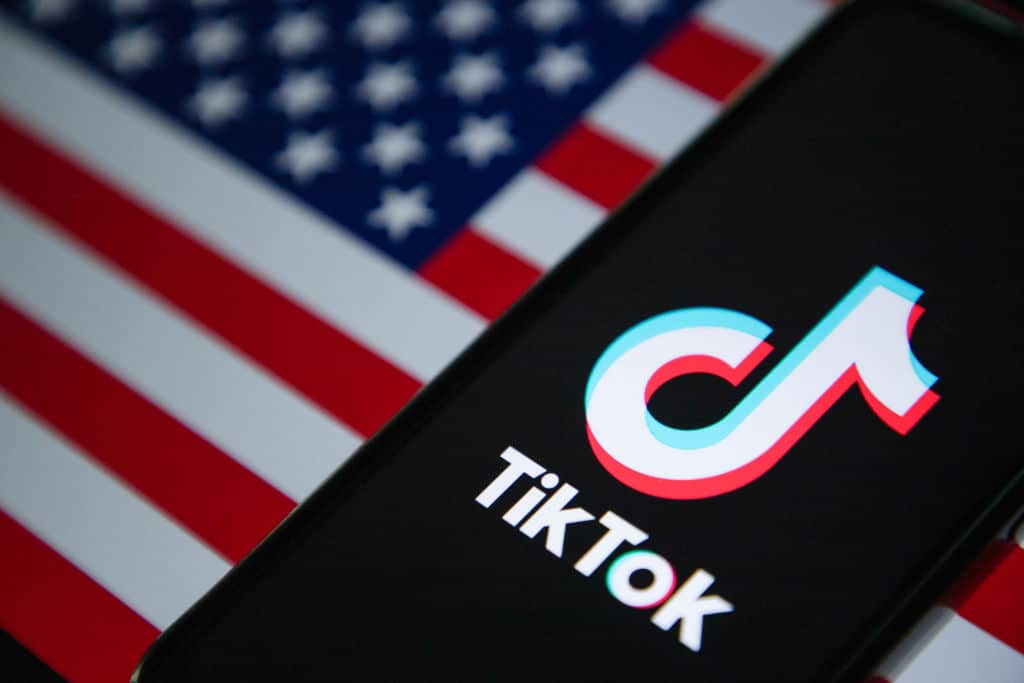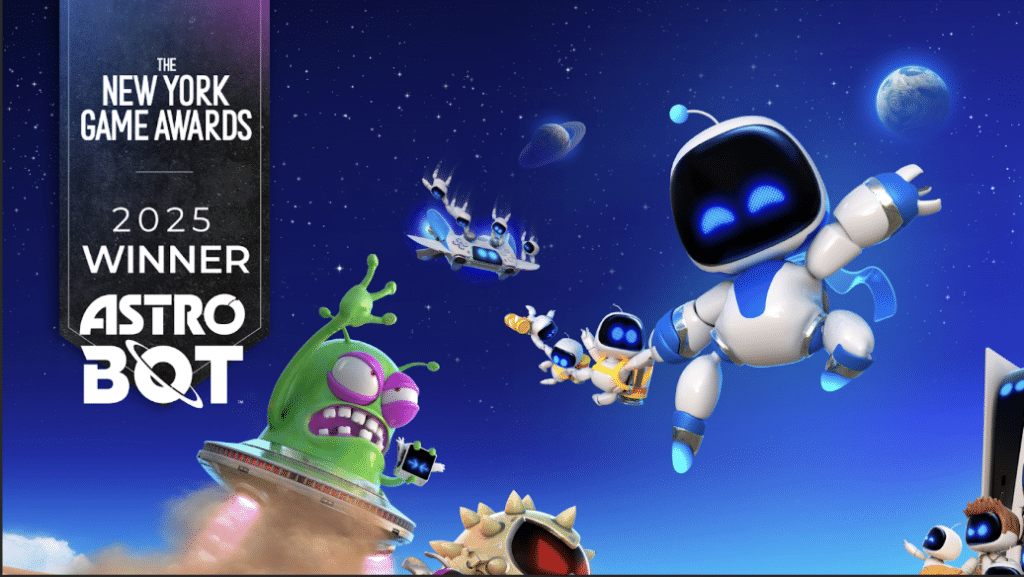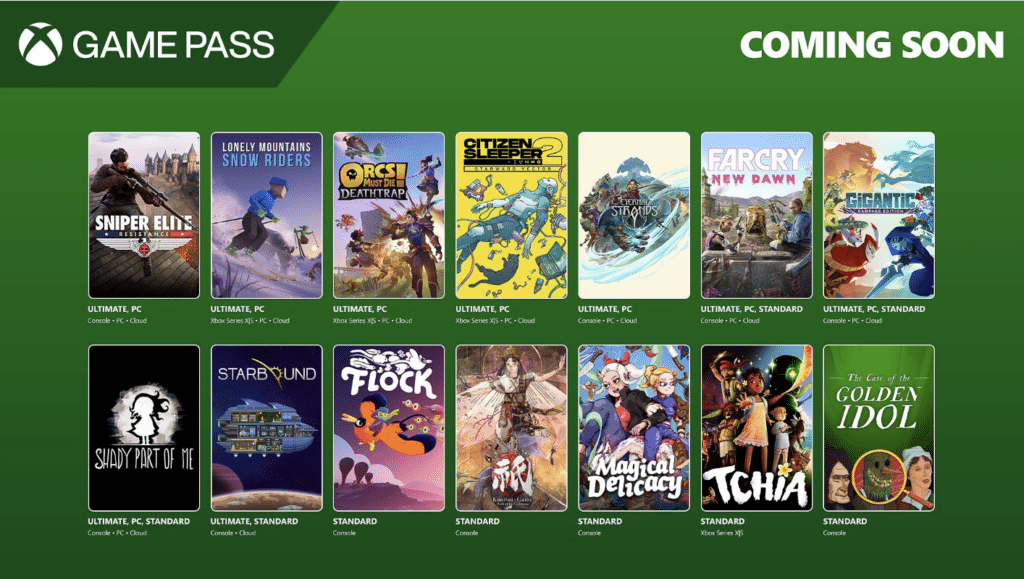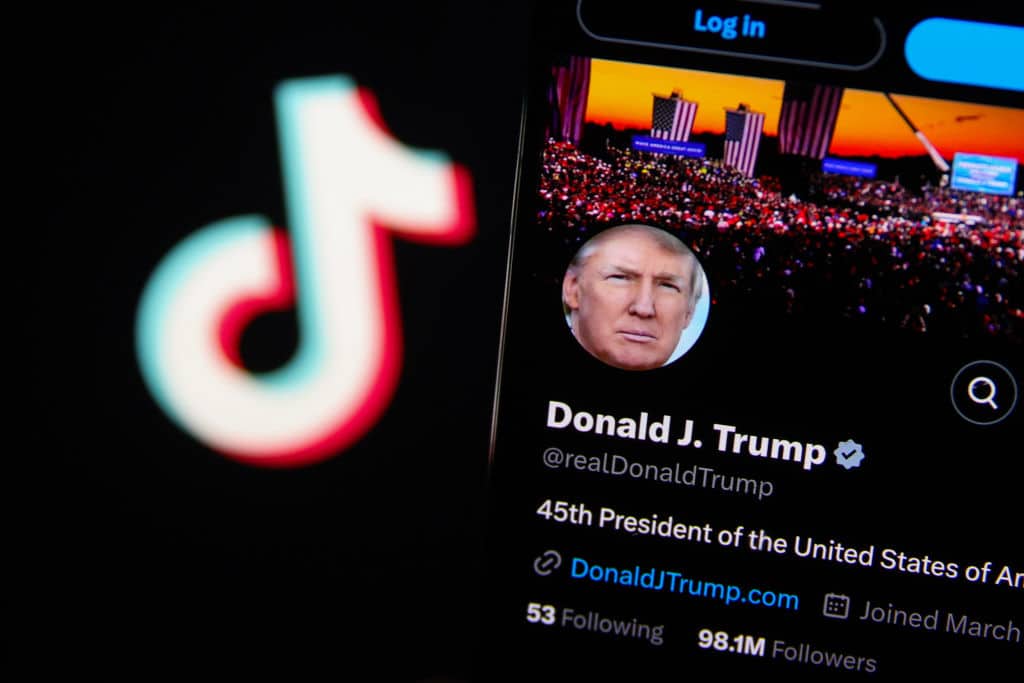tech
Page: 22

HipHopWired Featured Video
CLOSE
Source: Charley Gallay / Getty / Elon Musk
Elon Musk couldn’t be the fake gamer allegations and admitted to cheating. Now, understandably, real gamers are BIG MAD with Diablo 4 and Path of Exile 2 developers for not banning Phony Stark for his egregious gaming behavior.
Spotted on IGN, Blizzard Entertainment, and Grinding Gear Games, quietness on the matter of whether action will be taken against Musk has been deafening.
Gamers are now lashing out at the studio’s hesitation to ban Elon Musk’s accounts, leading some to believe that the developers are undermining the integrity of their games, IGN reports.
Rolling Stone shared screenshots of a private conversation between the world’s richest loser and a YouTuber where he openly admitted to paying for account boosting in Diablo 4 and Path of Exile 2.
“Have you level boosted (had someone else play your accounts) and/or purchased gear/resources for PoE2 [Path of Exile 2] and Diablo 4?” YouTuber NikoWrex asked. Musk replied with a 100% emoji, adding, “It’s impossible to beat the players in Asia if you don’t, as they do!”
“But when I post a video of a game or am streaming, that’s 100% me,” Musk continued. He was then asked if he would take credit for his high-level Path of Exile 2 character. “No. Never claimed that. The top accounts in Diablo or PoE require multiple people playing the account to win a leveling race.”
What Is Account Boosting?
For those who don’t know, account boosting occurs when a player logs into another player’s account to boost their rank. This directly violates every live service game’s terms of service. Account boosting or power-leveling, in exchange for payment, is prohibited per Blizzard’s end-user license agreement.
So it’s no surprise folks are mad that Musk has yet to be punished for his actions, and they are sounding off on the devs and the X/Twitter owner.
Per IGN:
Following Musk’s admission this week, Diablo 4 developer Blizzard Entertainment and Path of Exile 2 developer Grinding Gear Games have faced questions about whether they will now take action and ban Musk’s accounts for cheating.
“So now billionaires can buy their way to the top of the HC ladder as a vanity project like owning a football club. Are the TOS not being enforced even when openly broken?” asked one Path of Exile player in a post on the game’s official forum.
“Are there any comments from GGG regarding this? Maybe in [Early Access] it’s not a high priority, or it’s garnering too much free press, but as a longtime supporter, this is a massive blow to the credibility of RMT [real money trading] enforcement.
“I’m not trying to shitpost or troll with this, I’m just extremely disappointed that GGG isn’t getting out the ban hammer.
“Anyone else feel this is undermining the integrity of the game?”
Both Grinding Gear Games and Blizzard Entertainment declined to comment on the matter, with Blizzard telling IGN, “it does not comment on individual player account behaviors or enforcements.”
Again, this behavior from Elon Musk isn’t surprising.
You can see more reactions in the gallery below.
1. We call him Phony Stark within good reason
2. Sh*t’s crazy
6. Exactly
13. Expeditiously
14. A very loud one
HipHopWired Featured Video
CLOSE
Source: Koei Tecmo / Team Ninja / Platinum Games / Ninja Gaiden 4
Xbox kicked January off with a banger Developer_Direct presentation, and an iconic video game franchise is back!
Thursday, January 23, Xbox said oh, we got some things to show you, showcasing some titles coming to the Xbox Series X/S and whatever device that is now considered an Xbox console.
Ahead of the direct, Xbox revealed that we would hear from the developers behind upcoming titles South of Midnight, Doom: The Dark Ages, and Clair Obscure: Expedition 33.
Ninja Gaiden Is Back!
A mystery game from a mystery studio was also teased. In the presentation, we quickly learned that we are getting a new entry in the Ninja Gaiden franchise, Ninja Gaiden 4, which has a feel reminiscent of Metal Gear Solid 2: Sons of Liberty.
Team Ninja and Platinum Games are collaborating on Ninja Gaiden 4, which continues the style of the other titles in the 3D reboot trilogy that dropped between 2004 and 2012.
This time around, you will be able to play as two protagonists: Ryu Hayabusa and a new character named Yakumo, who is following in the footsteps of Ryu and wants to become a master ninja.
Source: Koei Tecmo / Team Ninja / Platinum Games / Ninja Gaiden 4
Based on the trailer, Platinum Games is the perfect studio for this game because the action looks much faster and even more stylish, and if it keeps the same energy as the other Ninja Gaiden games, being extremely difficult.
Ninja Gaiden 4 has no release date, but it will be available on PC, PS5, Xbox Series X/S, and Game Pass.
But wait, that’s not all. Xbox had another big Ninja Gaiden announcement and provided extensive looks into other games were made. Hit the gallery for those announcements.
1. NINJA GAIDEN 2 Black Official Launch Trailer
The legendary high-speed ninja action game returns graphically remastered!
Using Unreal Engine 5 to significantly enhance graphic expression, this is the definitive version of “NINJA GAIDEN 2,” featuring additional playable characters and enhanced battle support functions.
Play Today with Game Pass: https://www.xbox.com/games/store/prod…
2. South of Midnight
When a hurricane rips through Prospero, Hazel is pulled into a Southern Gothic world where reality and fantasy are interwoven, and ancient creatures from folklore emerge.
Coming to Xbox Game Pass, Xbox Series XIS, and Windows PC on April 8, 2025.
Play it day one with Game Pass or Pre-Order South of Midnight today! https://www.xbox.com/games/south-of-m…
3. Clair Obscur: Expedition 33 | Release Date Trailer
Clair Obscur: Expedition 33, the debut title from Sandfall Interactive, launches on Xbox Series X|S on April 24, 2025, and will be available Day One with Game Pass. With turn-based combat enhanced by real-time mechanics, you’ll face the Paintress to end her cursed countdown and save the future of Lumière.
Explore a Belle Époque-inspired fantasy world using the expansive World Map, uncovering secrets, side quests, and challenges.
Set up camp to reinforce weapons, bond with your Expedition teammates, and plan your next steps. Join Monoco (voiced by Rich Keeble), a shape-shifting Gestral, and Esquie (voiced by Maxence Cazorla), a towering ally who helps you swim, soar, and explore new paths.
Play it day one with Game Pass or Pre-order now: https://www.xbox.com/games/expedition-33
4. Doom: The Dark Ages
Join Marty, Hugo and the team at id Software as we journey into our first gameplay deep dive for DOOM: The Dark Ages!
Developed by id Software, DOOM: The Dark Ages is the prequel to the critically acclaimed DOOM (2016) and DOOM Eternal that tells an epic cinematic story of the DOOM Slayer’s rage.
In this third installment of the modern DOOM series, players will step into the blood-stained boots of the DOOM Slayer, in this never-before-seen dark and sinister medieval war against Hell. Coming May 15, 2025. Pre-order on Xbox Series X|S, PC or PlayStation 5.

HipHopWired Featured Video
CLOSE
Source: JIM WATSON / Getty / Donald Trump / Ross Ulbricht
It didn’t take long, but Donald Trump is up in the White House doing absolutely abhorrent nonsense. Along with pardoning all of the traitors who took part in the January 6 Insurrection, Orange Mussolini also handed out a pardon to Ross Ulbricht, a notorious drug dealer.
So much for being tough on crime.
Felon 47 has been on a pardon spree, and his latest one for Ulbricht, who ran the dark web marketplace Silk Road under the pseudonym “Dread Pirate Roberts,” is a doozy.
Before he got his get-out-of-jail-free card from Trump, Ulbricht was serving a life sentence in prison without parole since 2015 after he was convicted of multiple charges, including the distribution of narcotics.
The Silk Road marketplace, which was only accessible through the Tor network, became a popular destination for early Bitcoin users for commercial use. Buyers and sellers traded in illicit drugs and forged documents, such as passports.
Like any white crook nowadays, Ulbricht’s case became a cause for Right Wing crypto bros who are now in favor of Donald Trump, who is now into the cryptocurrency market all of a sudden after dropping a meme coin.
Supporters of Ulbricht feel his life sentence was unfair, go figure, and have been screaming for him to be free,e pointing to others similar offenses that didn’t receive the same punishment.
Per The Verge:
Ulbricht’s life sentence is unusually punitive. Similar offenses have garnered much more lenient sentences — for instance, Blake Benthall, who operated Silk Road 2.0, was sentenced to time served and three years of probation. Ulbricht’s lieutenant, Thomas Clark, also known as “Variety Jones,” was sentenced to 20 years in prison last year.
Anyway, although Ulbricht’s crimes were nonviolent, the judge who slapped Dread Pirates Roberts with the life sentence took into account the multiple deaths that were a direct result of the drugs sold on Silk Road.
During his trial, Ulbricht maintained his innocence, but when he was arrested, his laptop was in his possession. It had been unlocked, giving law enforcement access to all his files, the website code, private messages between himself and Silk Road employees, and a diary with entries matching messages on OKCupid, exposing his real identity.
Now, he’s a free man, and it’s pretty rich for Trump to pardon a drug dealer because he is the same guy calling for the death penalty for drug dealers, but we guess he means the Black and Brown ones.
Social media has been reacting to this latest pardon, especially in the wake of former President Joe Biden issuing pardons to his son Hunter Biden, other family members, Dr. Fauci, and members of the January 6 committee to protect them from Trump and his cronies.
You can see those reactions in the gallery below.
1. Listen to this breakdown of what is the most ridiculous pardon ever
2. Exactly
3. Mmmmhhhmmmm
4. Donald Trump is a sick man
6. Make it make sense
7. Tim Kaine with a great observation
8. You know the answer to this question
Artists such as Ariana Grande, Dua Lipa, Megan Thee Stallion and Conan Gray helped Weverse, HYBE’s social media/fandom platform, grow its users by 16% in both the U.S. and Canada in 2024, the company announced Wednesday (Jan. 22). Weverse users also saw strong growth elsewhere, rising 21% in Brazil, 14% in Mexico, 22% in Japan and 54% in Taiwan. Originally a platform for K-pop groups, the platform has grown along with HYBE’s global expansion and posted 19% user growth across all territories.
Those statistics and more come from the new 2024 Weverse Fandom Trend Report, a recap of the platform’s tremendous growth and a testament to fans’ interest in their favorite artists. Joon Choi, president of Weverse Company, called 2024 “a transformative year” that expanded the platform’s artist communities, fan engagement and commerce activities. “Weverse remains committed to innovating its services to meet the evolving needs of artists and fans, solidifying its position as the center of global fandom culture,” he said in a statement.
Trending on Billboard
As much of the music industry begins to focus on better serving superfans, Weverse has already established itself as a money-making destination for fans of a select group of artists. The platform launched in 2019 and last year introduced a subscription tier that provides ad-free viewing, video downloads for offline access, high-quality streaming and language translation. “Digital membership, we believe, is the very first cornerstone of the future evolution [of Weverse],” Choi told Billboard in December.
Like a typical social network, Weverse allows artists to publish messages and content and gives fans an opportunity to leave comments. In 2024, Weverse Artists on the Weverse platform shared approximately 206,000 posts and fans generated 370 million posts. SEVENTEEN had the highest number of posts while ENHYPEN had the most comments. The platform also allows fans to send direct messages to artists — a perk for subscribers. Last year, artists sent 698,000 direct messages to fans and fans sent 96.36 million messages to artists. More than half (55%) of artists on Weverse send direct messages to fans at least every two days. Fans also sent 4.88 million personally decorated digital letters. Jung Kook received the most fan letters while LEEHAN of BOYNEXTDOOR responded to the most fan letters.
Weverse also hosted 5,787 live broadcasts on Weverse Live, the platform’s live streaming feature, totaling 4,779 hours of content in 2024 (artists don’t only live stream concert performances on Weverse Live and in fact usually opt for casual interactions and Q&A sessions with fans). Weverse Live videos were viewed 426 million times by 11.25 million unique Weverse users in 2024, while the top live stream of the year was “Missed You a Lot” by Jung Kook, which amassed 23 million real-time views.
E-commerce separates Weverse from a typical social network. Through Weverse Shop, Weverse sold 20.6 million pieces, a 13% increase from 2023. Physical merchandise such as albums and collectibles improved 10%, while Weverse Shop also sold 3.4 million pieces of digital merchandise, including artist memberships and online content, a 24% increase. Other than Weverse’s home market of South Korea, the United States and Japan were the top markets for merchandise. The top-selling digital items were artist memberships: BTS ARMY memberships were most popular in Oceania, Latin America and Europe while SEVENTEEN’s CARAT memberships were most popular in North America.
Music AI, a developer of artificial intelligence for music and audio, announced Wednesday it raised $40 million in a funding round led by Connect Ventures, a partnership between CAA and venture capital firm NEA, and Brazilian investor monashees, which also participated in Music AI’s seed around.
Other participants in the funding round include Kickstart, Samsung Next, Toba Capital, Valutia, Pelion and such music industry professionals as songwriter/producer Freddy Wexler, DJ/producer 3LAU and singer/songwriter Alexander23.
“Securing this Series A funding underscores the real-world impact our technologies have on the creative industry,” Geraldo Ramos, CEO of Music AI, said in a statement. “We’re ready to advance our mission of making music innovation accessible to all, and we’re eager to explore new possibilities with a focus on practical applications.” Founded by Ramos, Eddie Hsu, and Jardson Almeida, Music AI has a team of over 90 collaborators in the U.S., Brazil and Europe.
Trending on Billboard
Some AI companies have run into legal problems from music rights owners intent on preventing unauthorized use of their recordings and musical works to train generative AI models. Suno and Udio, for instance, were sued in the U.S. by the major labels for copyright infringement in June 2024, and Suno was sued on Monday by German performing rights organization GEMA in a Munich regional court. Music AI distances itself from those controversies, calling its products “ethical AI solutions” for the creative process such as stem separation, voice transfers, lyric transcription and mixing and mastering. The company’s technologies, including Music.ai and Moises.ai, have over 50 million users.
“We are deeply committed to partnering with ethically led AI companies that appropriately credit and compensate creators for usage of their work,” Michael Blank, managing partner at Connect Ventures, said in a statement. “Music AI’s talent-friendly approach and unparalleled technology is helping them become the trusted and premier AI platform of the music industry. Beyond empowering artists, Moises enhances the creative process for musicians, producers, and content creators worldwide for practice, creation, and collaboration.”
Samsung Next is interested in Music AI’s models’ ability “to run directly on hardware for faster performance, reduced latency and reduced cloud dependency,” said Carlos Castellanos, investor at Samsung Next. “Their proprietary models, third-party integrations, and on-device AI capabilities ensure reliability, security, and scalability across smartphones, smart TVs, and other connected devices—all while elevating the end-user experience with cutting-edge features.”
HipHopWired Featured Video
Source: NYVGCC / 2025 New York Game Awards / Astro Bot
Astro Bot continues to take home the big trophies. The exceptional PlayStation 5 platformer from Team ASOBI took home the night’s most significant honor during the 2025 New York Game Awards on Tuesday, January 21.
A cold winter night in NYC could not cool off Astro Bot’s momentum. During the 2025 New York Game Awards hosted by NY Video Game Critics Circle President Harold Goldberg and former Nintendo of America president Reggie Fils-Aimé, the PlayStation 5 exclusive took home three awards: Best Music in a Game, Best Kids Game, and the cherry on top, Game of The Year.
Simone De Rochefort and Clayton Ashley (Polygon) took home the prestigious Knickerbocker Award for Best Games Journalism. Remedy Studios’ head, Sam Lake, was honored in special tribute as this year’s recipient of the 2025 Andrew Yoon Legend Award.
Regarding entertainment, toes were tapping, and heads were nodding, thanks to a performance from Mega Ran, who debuted a brand new original song for the award show.
Another successful New York Game Awards is in the books. For more information on the NY Video Game Critics Circle and the critical work they do to ensure inner-city youth can find their way in the game journalism space, you can head here.
2025 New York Game Awards Winners
Big Apple Award for Best Game of the Year: Astro Bot
Off Broadway Award for Best Indie Game: UFO 50
Herman Melville Award for Best Writing in a Game: Metaphor: ReFantazio
Statue of Liberty Award for Best World: Elden Ring: Shadow of the Erdtree
Tin Pan Alley Award for Best Music in a Game: Astro Bot
Great White Way Award for Best Acting in a Game: Troy Baker as Indiana Jones in Indiana Jones and the Great Circle
Coney Island Dreamland Award for Best AR/VR Game: Batman: Arkham Shadow
Central Park Children’s Zoo Award for Best Kids Game: Astro Bot
A-Train Award for Best Mobile Game: Zenless Zone Zero
Freedom Tower Award for Best Remake: Silent Hill 2
Chumley’s Speakeasy Award for Best Hidden Gem: Mouthwashing
NYC GWB Award for Best DLC: Elden Ring: Shadow of the Erdtree
Knickerbocker Award for Best Games Journalism: Simone De Rochefort & Clayton Ashley
Andrew Yoon Legend Award Recipient: Sam Lake
HipHopWired Featured Video
Source: Kevin Carter / Getty / Donald Trump / TikTok
TikTok’s “savior,” Donald Trump, has given TikTok more time to secure a sale, but it’s still unclear if his actions will delay the platform’s ban in the United States.
On his first unfortunate day back in office, Monday, January 20, Donald Trump put his ugly a** signature to paper, signing an executive order stalling the federal ban on TikTok for 75 days.
According to the New York Times, the executive order instructs the Attorney General, presumably a Trump loyalist, and his former attorney, Pam Bondi, not to enforce the ban, giving his sorry administration “an opportunity to determine the appropriate course forward.”
When signing the executive order, Trump told reporters that if a deal is struck, “the U.S. should be entitled to get half of TikTok.”
According to the New York Times, the executive order could face legal challenges, specifically on his having the power to stop a federal law.
Donald Trump “Gets” TikTok Now
Trump’s executive action comes after TikTok hilariously banned itself early Saturday night, flipping the switch and turning off service in the U.S., and then turning back on Sunday following Trump’s announcement that he planned to sign an EO.
When users launched the app, they were greeted by a notification from TikTok telling them they could use the service stateside once again. They thanked Donald Trump for his help, sparking instant reactions from users who called the whole moment a stunt, likening it to Trump delaying stimulus checks so that he could put his signature on them.
When asked about his change of heart about TikTok, Trump told reporters, “Because I got to use it…TikTok is largely about young kids…if China is gonna get information about young kids, I don’t know.”
Donald Trump is asked about TikTok:
“Every rich person has called me about TikTok.”
Asked why he delayed the ban:
“Because I got to use it…TikTok is largely about young kids…if China is gonna get information about young kids, I dunno.”
Wow…just…wow. pic.twitter.com/M052GgekMO
— Art Candee 🍿🥤 (@ArtCandee) January 21, 2025
https://platform.twitter.com/widgets.js
LMAO, WHAT?
We shall see what happens with TikTok because the platform’s future still looks shaky despite its CEO, Shou Zi Chew, kissing the ring right now.
HipHopWired Featured Video
Source: Xbox / Xbox Game Pass
It’s a new year, and the best deal in gaming, Xbox Game Pass, is only getting better. Some new games are coming to the library to keep you picking up the Xbox controller or whatever peripheral you use since everything is almost an Xbox now.
Xbox is bringing more day-one releases, fan favorites, and hidden gems to Xbox Game Pass and Ultimate ahead of the upcoming Developer_Direct, which promises to reveal a brand new, unannounced title.
We won’t talk your head off here. Let’s get to games.
Available Right Now!
Available today, it will be Lonely Mountain: Snow Riders, the follow-up to Lonely Mountains: Downhill. It now features eight players via cross-platform multiplayer as players are challenged to work their way down the slopes while sharing a limited number of checkpoints, or you can partake in a breakneck race to the base.
Coming Soon To Xbox Game Pass
Flock (Console) – January 22 Now with Game Pass Standard
Flock is a multiplayer co-op game about the joy of flight and collecting adorable flying creatures with your friends. Soar through beautiful landscapes, seeking out rare and elusive creatures to add to your flock.
Gigantic: Rampage Edition (Cloud, Console, and PC) – January 22 Game Pass Ultimate, PC Game Pass, Game Pass Standard
Gigantic: Rampage Edition is a premium and definitive release of the original 5v5 MOBA hero shooter that provides a dynamic and exciting team-based multiplayer experience for fans of both genres. Choose from a diverse roster of unique heroes, each with a set of upgradeable abilities, and team up with four other players to control objectives and take down the opposing team’s mighty Guardian, all while protecting your own.
Kunitsu-Gami: Path of the Goddess (Console) – January 22 Now with Game Pass Standard
A unique Japanese-inspired, single player Kagura action strategy game. It takes place on a mountain covered by defilement. During the day, purify the villages and prepare yourself for sundown. During the night, protect the Maiden against the hordes of the Seethe. Repeat the day and night cycle until you cleanse the mountain of defilement and return peace to the land.
Magical Delicacy (Console) – January 22 Now with Game Pass Standard
A wholesome pixel art platformer. Cook magical delicacies from a vast collection of ingredients in your own shop. Explore an unfamiliar town and deliver tasty treats to the townsfolk. Learn new ways to traverse, discover secrets, and experience a unique witchy world.
Tchia (Xbox Series X|S) – January 22 Now with Game Pass Standard
Join Tchia on her tropical open-world adventure as she sets off to rescue her father from the cruel tyrant, Meavora, ruler of the archipelago. Climb, glide, swim, and sail your boat around beautiful islands as you explore a physics-driven sandbox.
The Case of the Golden Idol (Console) – January 22 Now with Game Pass Standard
Mayhem, magic, and murder most foul! Examine clues and use your powers of deduction to solve the twisted mystery of a family’s cursed inheritance and a series of grisly deaths in this point-and-click detective adventure game
Starbound (Cloud and Console) – January 22 Game Pass Ultimate, Game Pass Standard
Currently available with PC Game Pass and now coming to Xbox consoles and Xbox Cloud Gaming (Beta)! In Starbound, you create your own story – there’s no wrong way to play! You may choose to save the universe from the forces that destroyed your home, uncovering greater galactic mysteries in the process, or you may wish to forego a heroic journey entirely in favor of colonizing uncharted planets.
Eternal Strands (Cloud, Console, and PC) – January 28 Game Pass Ultimate, PC Game Pass
Available on day one! Eternal Strands is the debut fantasy title from Yellow Brick Games, a new independent studio founded by industry veterans from franchises including Dragon Age, Mass Effect, Watch Dogs, and Assassin’s Creed. Fight epic, towering creatures while blending magical abilities with an arsenal of powerful weapons to keep the world from crumbling in this third-person, action-adventure game.
Orcs Must Die! Deathtrap (Cloud, PC, and Xbox Series X|S) – January 28 Game Pass Ultimate, PC Game Pass
Available on day one! Orcs Must Die! Deathtrap is an action-packed, third-person shooter and trap defense game. Evolve as an orc-slaying War Mage through rogue-lite choices and obliterate, eviscerate, and incinerate massive hordes with up to four players.
Shady Part of Me (Cloud, Console, and PC) – January 29 Game Pass Ultimate, PC Game Pass, Game Pass Standard
Shady Part of Me sends you on an emotional and dream-like journey, with breathtaking artistic direction and the enthralling voice of Hannah Murray from “Game of Thrones” and “Skins.” As a little girl and her shadow, overcome emotional struggles through surreal dreamscapes across a touching narrative filled with twists and surprises. Both must learn, cooperate, and evolve to progress in a poetic journey.
Sniper Elite: Resistance (Cloud, Console, and PC) – January 30 Game Pass Ultimate, PC Game Pass
Available on day one! Offering unparalleled sniping mechanics, stealth, and tactical third-person combat, Sniper Elite: Resistance turns the attention of the award-winning series towards a hidden war, far from the front lines, deep within the heart of occupied France. Bring a friend – the full campaign can be experienced in co-op.
Citizen Sleeper 2: Starward Vector (Cloud, PC, and Xbox Series X|S) – January 31 Game Pass Ultimate, PC Game Pass
Available on day one! The highly anticipated sequel to one of 2022’s most acclaimed RPGs, Citizen Sleeper 2: Starward Vector, is a dice-driven RPG in a human and heartfelt sci-fi world. You are an escaped android with a malfunctioning body, a price on your head, and no memory of your past. Get a ship, find a crew, and take on contracts while you navigate across the Starward Belt.
Far Cry New Dawn (Cloud, Console, and PC) – February 4 Game Pass Ultimate, PC Game Pass, Game Pass Standard
Dive into a transformed, vibrant, post-apocalyptic Hope County, Montana, 17 years after a global nuclear catastrophe. Lead the fight against the Highwaymen as they seek to take over the last remaining resources.
Games Leaving Xbox Game Pass On January 31
With the arrival of new titles coming to Xbox Game Pass, that sadly means some games will have to leave the service, so if you’re hoping to play these games, you better hop on it quick or use your membership discount, saving up to 20% to keep these outgoing titles in your library.
Anuchard (Cloud, Console, and PC)
Broforce Forever (Cloud, Console, and PC)
Darkest Dungeon (Cloud, Console, and PC)
Death’s Door (Cloud, Console, and PC)
Maquette (Cloud, Console, and PC)
Serious Sam: Siberian Mayhem (Cloud, Console, and PC)
DLC & Game Updates
Xbox also allows Game Pass subscribers to access DLC and updates for titles like Diablo IV and Valorant.
Diablo IV: Season of Witchcraft – Available now
Diablo IV: Season of Witchcraft has begun! Unravel the mystery of the Tree of Whispers’ stolen Heads by harnessing Witchcraft Powers to hunt the rogue Heads as they spread madness across Sanctuary. Complete the Season Journey to earn a new Raven Pet. Learn more on Xbox Wire.
Valorant: New Agent Tejo – Available now
Game Pass members now have access to Valorant’s newest Agent, Tejo, who’s joining the roster from Colombia. As part of the Initiator class, Tejo specializes in flushing out enemies with a unique kit consisting of information gathering, explosions, and a concuss. Learn more about Tejo’s abilities on Xbox Wire.
Xbox Game Pass Ultimate Perks
Xbox Game Pass Ultimate subscribers get to play some of the biggest titles and enjoy these perks. You can access the Game Pass section on your console, Xbox mobile app, or Xbox app on PC to find new in-game content, consumables, and offers included with your Game Pass Ultimate membership.
Throne and Liberty: Lottie and Percy Bundle – Available now
Join the Resistance in this Xbox exclusive colored Lottie Outfit and get a Fuzzy Percy Amitoi to tag along on your adventures in this free-to-play, guild-focused combat experience.
EA Sports UFC 5: Bruce Lee Bundle – Available now
Unlock new alter egos for the father of mixed martial arts, available with your EA Play membership. EA Play membership is included with Game Pass Ultimate.
War Thunder: Year of the Snake Bundle – Available now
Celebrate the Lunar New Year of the Snake with a mighty tank Sherman Jumbo “Cobra King” and versatile fighter plane P-63C-5 “King Cobra”.
Enlisted: Ultimate US Starter Pack – Available now
Get a great start in Enlisted with the premium US Assaulters squad armed with M3A1 Grease Guns!
Keep it locked on HHW Gaming for more news regarding Xbox Game Pass, and be sure to stick around for our coverage for the upcoming Developer_Direct.
HipHopWired Featured Video
CLOSE
Source: NurPhoto / Getty / TikTok Ban
Welp, TikTok and its China-based owner ByteDance f***ed around and found out. Late Saturday night, TikTok was officially banned in the U.S., but it’s back up after Donald Trump vowed to save it. Shockingly, the card-collecting video game Marvel Snap and video editing app CapCut are still down for the count.
TikTok went dark last night, causing all the influencers to lose their sh*t and take their grievances to X, Instagram, and wherever else they can hit a publish button.
Last night, TikTok’s 187 million U.S. users were greeted with a message telling them they could no longer use the app and that the company was fortunate that Felon 47, Donald Trump, would work with them to find a solution.
“Sorry, TikTok isn’t available right now. A law banning TikTok has been enacted in the U.S. Unfortunately, that means you can’t use TikTok for now,” the message begins. “We are fortunate that President Trump has indicated that he will work with us on a solution to reinstate TikTok once he takes office. Please stay tuned!”
TikTok cooked 😂🤣 pic.twitter.com/hzQvE5N6gG
— B E A N Z The Gamer Dad(beanzgotgamez.bsky.social) (@BeanzGotGamez) January 19, 2025
https://platform.twitter.com/widgets.js
Gen Z’s nightmare scenario of either having to put their phones down or use other social media platforms to share bad takes and do dance videos came to an end on Sunday after President-elect Trump said on his bullsh*t platform, Truth Social, that he will issue an executive order on Monday to save it.
Per MSNBC:
“I’m asking companies not to let TikTok stay dark!” Trump wrote in a post on Truth Social. “I will issue an executive order on Monday to extend the period of time before the law’s prohibitions take effect, so that we can make a deal to protect our national security. The order will also confirm that there will be no liability for any company that helped keep TikTok from going dark before my order.”
As of this writing, the switch has been flipped back on in the U.S., with the company writing in a post on X, formerly Twitter, “In agreement with our service providers, TikTok is in the process of restoring service. We thank President Trump for providing the necessary clarity and assurance to our service providers that they will face no penalties providing TikTok to over 170 million Americans and allowing over 7 million small businesses to thrive.”
“It’s a strong stand for the First Amendment and against arbitrary censorship. We will work with President Trump on a long-term solution that keeps TikTok in the United States.”
STATEMENT FROM TIKTOK:
In agreement with our service providers, TikTok is in the process of restoring service. We thank President Trump for providing the necessary clarity and assurance to our service providers that they will face no penalties providing TikTok to over 170…
— TikTok Policy (@TikTokPolicy) January 19, 2025
https://platform.twitter.com/widgets.js
The effort to ban TikTok was started by Trump in 2020 pic.twitter.com/7npCMW08qJ
— PatriotTakes 🇺🇸 (@patriottakes) January 17, 2025
https://platform.twitter.com/widgets.js
The TikTok Jig Is Loading….
While this may seem like a win for everyone, some see the jig, accurately pointing out that Donald Trump called for TikTok to be banned during the tail end of his disastrous presidency.
Popular political commentator @2RawTooReal pointed out how Trump and the CEO of TikTok, Shou Zi Chew, are in “cahoots” because Chew will be attending Trump’s now indoor inauguration ceremony. He also points out in his video that Trump wrote the EO (executive order) calling for the platform to be banned, but only for President Biden to revoke it when he took office.
2RawTooReal also points out that the law allows the president to grant TikTok a 90-day extension, allowing TikTok to find a buyer or, as he points out, allow Trump to work with the Republican-controlled Senate and House to pass a bill saving the platform, making Trump look like a hero and a champion of entrepreneurs.
He also points out that Chew shared a video of far-right political activist Charlie Kirk on his TikTok page and that the app buried his and other videos of users fact-checking misinformation about Vice President Kamala Harris.
The TikTok CEO and Donald Trump are in cahoots pic.twitter.com/IZT3HJrmni
— 2RawTooReal (@2RawTooReal) January 19, 2025
https://platform.twitter.com/widgets.js
Marvel Snap Is Still Down
While TikTok is back up, Marvel Snap is still down. Now, why, you might ask? IGN reports that the game was “developed by Second Dinner and was published by ByteDance-owned publisher Nuverse, which is what led to the ban.”
Well damn.
Second Dinner’s Chief Development Officer and Co-Founder, Ben Brode, revealed on BlueSky that the ban surprised his company.
“Unfortunately, Marvel Snap is temporarily unavailable in U.S. app stores and is unavailable to play in the U.S. This was a surprise to Second Dinner and our publisher Nuverse,” Brode wrote. “We’re actively working on getting the game up as soon as possible and will update you once we have more to share.”
He offered those thirsty to log in and give advice, suggesting they should use a VPN.
“FWIW I am hearing that VPN software will allow you to continue playing Marvel Snap in the meantime, as long as you pretend you’re from Canada or something,” he said.
What a mess.
You can see more reactions to the whole TikTok fiasco in the gallery below.
1. Donald Trump is not slick
2. Hit Charlie Kirk with the mean “this you?”
3. Accurate
4. Symone Sanders & The Weekend crew see the jig
5. Glad y’all are happy
6. This gif is always gold
7. Never forget
8. Please, don’t forget that Republicans don’t want to ban assault weapons

HipHopWired Featured Video
CLOSE
Source: SOPA Images / Getty / TikTok
Welp, it’s not looking good for everyone’s favorite social media platform, TikTok. The Supreme Court upheld the law banning the app in the U.S. if its Chinese owner, ByteDance, couldn’t facilitate a sale.
The clock officially ran out after TikTok’s final attempt to continue operating in the United States. The Supreme Court delivered the death blow, upholding a lower court ruling that ByteDance must sell the app by January 19 due to national security concerns.
“There is no doubt that, for more than 170 million Americans, TikTok offers a distinctive and expansive outlet for expression, means of engagement, and source of community,” an unsigned opinion from the justices read. “But Congress has determined that divestiture is necessary to address its well-supported national security concerns regarding TikTok’s data collection practices and relationship with a foreign adversary. For the foregoing reasons, we conclude that the challenged provisions do not violate petitioners’ First Amendment rights.”
The ban would go into effect under the Protecting Americans from Foreign Controlled Applications Act that President Joe Biden signed.
TikTok’s future in the United States is in dire jeopardy due to no sale on the table that could save it from the ban, forcing social media influencers to find another platform to do their “influencing” to continue making a living.
TikTok’s Fate Is In The Hands of Donald Trump
The outgoing Biden administration is punting on the matter, leaving TikTok’s fate in the hands of the platform’s newest “fan,” President-elect Donald Trump, who said to CNN, “It ultimately goes up to me, so you’re going to see what I’m going to do.”
“Given the sheer fact of timing, the administration recognizes that actions to implement the law simply must fall to the next administration, which takes office on Monday,” the Biden administration said.
“President Biden’s position on TikTok has been clear for months, including since Congress sent a bill in overwhelming, bipartisan fashion to the president’s desk: TikTok should remain available to Americans, but simply under American ownership or other ownership that addresses national security concerns identified by Congress in developing this law,” the statement read by White House Press Secretary Karine Jean Pierre said fresh off the Supreme Court’s ruling.
Trump also confirmed on his sh*tty platform Truth Social that he has spoken with China’s president Xi Jinping, claiming that he brought up TikTok during the conversation, whatever that means.
So What’s Going To Happen With TikTok?
When the ban officially begins, it will be up to the Google and Apple APP stores to enforce it and keep it from being available to users or face potential fines.
According to Deadline, the roughly 187 million Americans currently using the app will still have access to it, but they will not receive routine updates, rendering it a shell.
According to The Information, TikTok is prepared to go dark in the U.S. on Sunday, but the company could also “wait and see” what the Trump administration does.
Who Are The Potential Buyers?
During the previous nightmare that was Donald Trump’s first term, he was in favor of banning or forcing a sale of the app before his flip-flopping on the matter.
Deadline notes that he cannot stop the bipartisan legislation, but he could ask his incoming “Justice Department” not to enforce the ban.
There were rumors that China was considering Elon Musk’s potential purchase of TikTok. What could go wrong with this man owning another social media platform? TikTok has denied those claims.
Even Canadian Trump fan and Shark Tank cast member Kevin O’Leary is part of a formal bid submitted by Frank McCourt-founded Internet advocacy group Project Liberty to potentially buy TikTok without its algorithm to allow the 170 American users to “preserve the platform’s vibrant community, while also giving 170 million American TikTokers the ability to control, protect, and benefit from their data.”
We shall see what happens with the platform, but it looks like it’s a wrap right now.
You can see reactions to the news in the gallery below.
2. What is wrong with y’all ?
3. There might be some truth to this
4. Never forget!
5. Interesting take on the matter
8. Well, you should ask the GOP about most of those matters, TikTok was the only thing Republicans and Democrats agreed on
10. Womp, womp, womp
12. We shall see if his warming up to Donald Trump will help him in the long run

 State Champ Radio
State Champ Radio 







